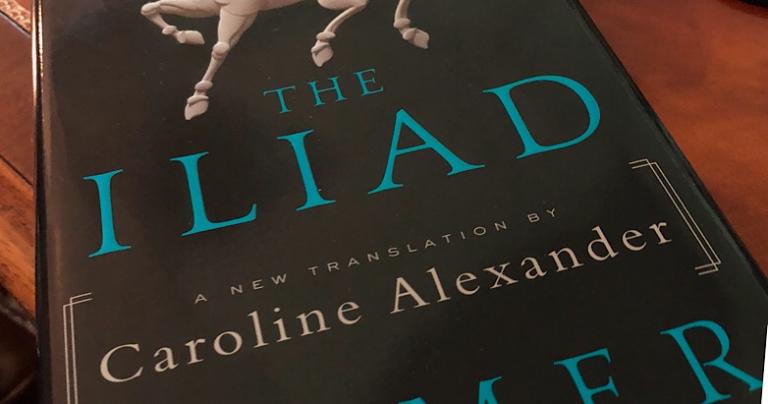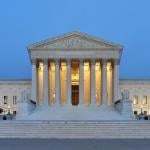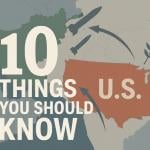
The late John McCain had a father and grandfather who both became admirals in the Navy. Did he live in the shadow of such success or in the light of it?
Reporters differed in how they framed the McCain heritage because how you see the relationship between a father and his son, especially if the father is very successful, depends on many assumptions. Who can be sure? McCain, a long time senator and Republican presidential nominee, was very successful. Family connections helped him early on, though also made his torture worse in a Vietnam POW camp. He benefited from his famous sires and inherited their love of country. He had their sense of duty to serve this nation.
Is that a shadow or a light? Did they cast shade on him, stunting other “McCain’s” that could have been or did they light up a pathway? They trained him in the way they thought he should go and, as usually happens, until the day he died, John McCain did not depart from it.
My guess is that any future biography of Senator McCain will begin with the influence of his famous grandfather and father. You will be able to guess the tone of the particular biography and the writer’s central thesis about John McCain by how the writers make use of that relationship.
This relationship counts enough in the life of every man, even when his dad is missing, that there is a whole genre of great literature that examines the question. The Iliad, one of the earliest books we have in Western European literature, has as a central theme of fathers and sons.
What you need to know about John McCain and the Iliad
The first line of the Iliad is about an angry man first identified as his father’s son. Achilles will get help from his divine mother, as many men do, but his all-too-human father has let him down. Achilles has more power than the body and mind he has received from his dad can tolerate. He is fatally flawed, but he is so awesome that few can see the flaw. Nobody can cope or help, because Achilles has inherited so much.
Poor little demigod.
If Achilles is the son who begins the book, then Hector is the son who ends it. The last line is set in the house of Hector’s father:
Thus they tended the funeral of Hector, breaker of horses.
There are two sons who matter most in Iliad: Paris and Hector. Both are almost divinely talented and attractive. Paris has used his gifts to pursue erotic love. Hector has built a family and tried to serve his city.
The reader of Iliad knows that Paris has come back from his road trip with Helen. In doing so, Paris has set up Troy for a war she will not win; without Helen, there would be no Trojan War. Ten years into the conflict, when the Iliad begins, the Trojans know that if the Greeks persist, as they look to do, they are doomed. The rich, beautiful city will fall.
Readers of Iliad also know that Priam was not the most attentive father to Paris. Baby Paris was prophesied to bring ruin on the city, but was such a lovely child that the King could not just kill him. Priam manages the difficult feat of being both a bad king and bad father by exiling the infant. Paris grows up smart and physically beautiful. He also is stupid enough to pick Aphrodite in a contest for Most Beautiful Goddess, thus making the war goddess and Zeus’ consort his mortal foes.
Helen is his reward, but Aphrodite has given the lovers a life that Troy cannot afford. The Greeks come for revenge.
Fathers and sons
Priam is both too soft and too hard on Paris. He gets his reward: a son that loves him but has no character. In Iliad Paris is pictured sitting about fondling his armor, but not fighting. People in Troy, especially the dutiful brother Hector, naturally resent his fiddling while Troy gets ready to burn.
The Iliad does not picture the scene, but Paris will kill Achilles, the greatest warrior of his time, with a lucky bow shot. The naturally gifted weekend warrior has, from the Homeric perspective, a profitable war.
Priam’s other famous son (in terms of the Iliad) Hector is killed by Achilles, though he puts up a good fight. Hector loves Troy and his father. He is the only reason Troy has held out as long as she has. In Book VI, he is pictured as having the warmest marital relationship in the book. He also adores his infant son. In fact, he loves his son so much that he loses track of what he knows and prays his son will be a good ruler of Troy someday.
He had to have known what would happen: the Greeks would let no son of Hector live. They didn’t.
Still, the Iliad does not picture the end of Troy. Instead, Homer, the great artist, ends the epic with Priam putting his life in danger and humiliating himself to get the body of his son returned for a funeral. Achilles does not want to give it up, but he relents. Priam gives Hector the best funeral wartime Troy can afford.
What does all this have to do with John McCain?
Where does this leave the reader?
Paris may have had the more pleasurable war, but Hector ends a hero with a hero’s reward. There was no shame in losing to a demigod and honor in lasting as long as he did. Hector, beginning to end, is noble. We all end up dead, Homer seems to be saying, so you might as well honor your father and end well.
Call no man “happy” until he is dead, the Greeks said. Hector died a good father and a good son. He ended as blessed as the pagan Homer could make him. The Iliad starts with Achilles introduced and defined by his father. Hector, on the other hand, is buried by all Troy. The previous line mentions his father’s house, and that Priam was “nurtured by Zeus,” but on the last, key line, Hector is with his city.
He died beloved of his father but also beloved by his community for his own sake. So may it be said of every son of a great father.
I cannot help but think in this troubled Republic that the state honors given to John McCain, the dutiful son who was tempted to be Paris but was Hector by the end, are not Homeric. The Almighty will decide the afterlife—may He have mercy on John McCain’s soul—but his fathers won out and we bury with honor John McCain, maverick of the Republic.
————————————
I am the son of a great father. I do what I can.
Rachel Motte edited this essay and added the subheadings.












